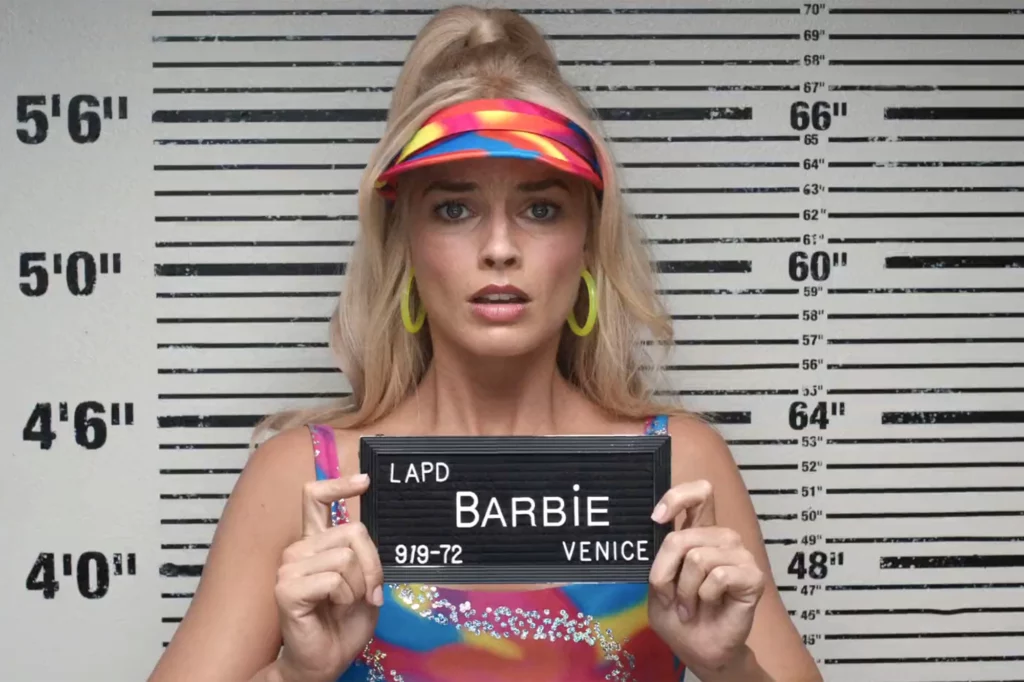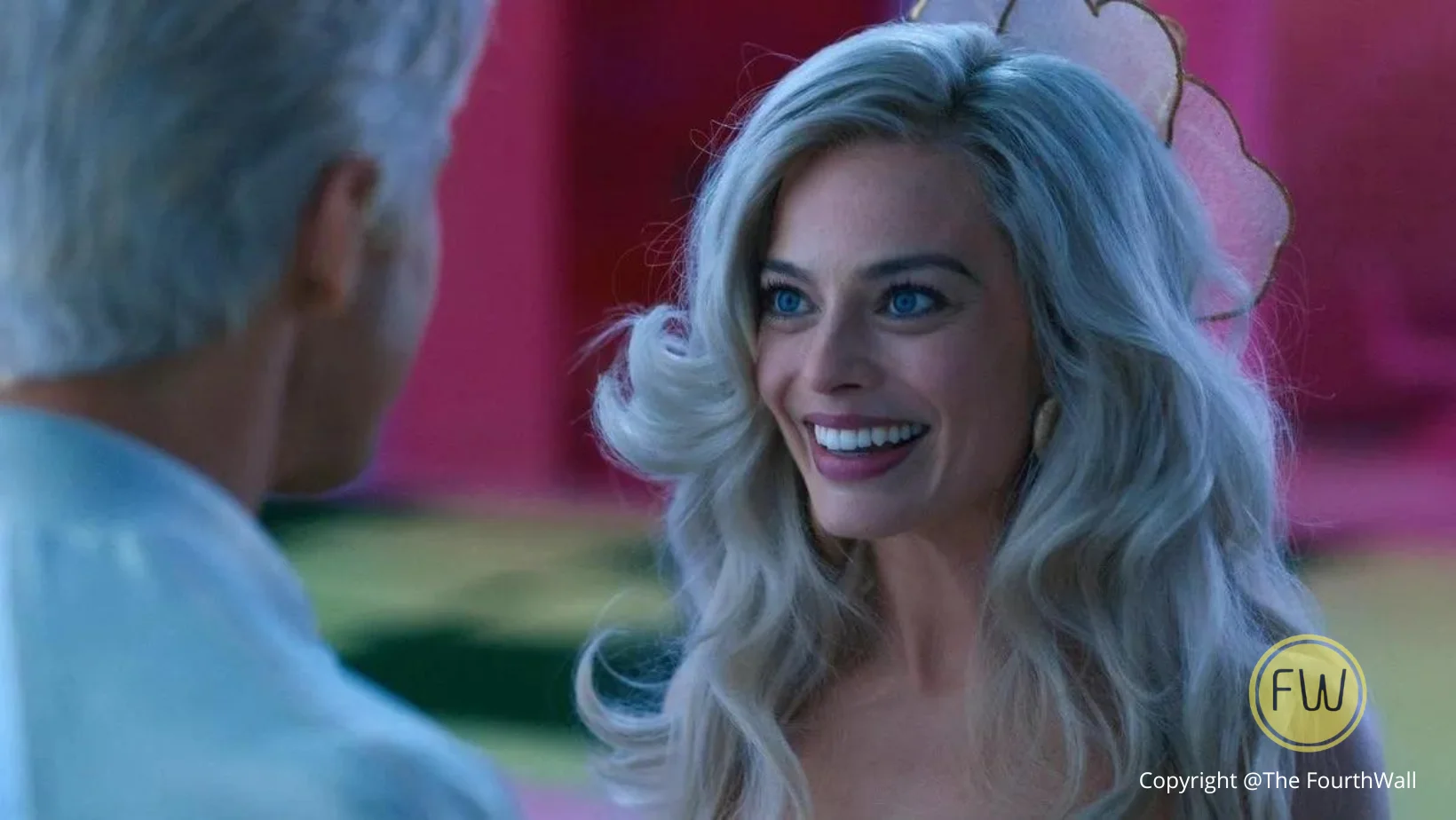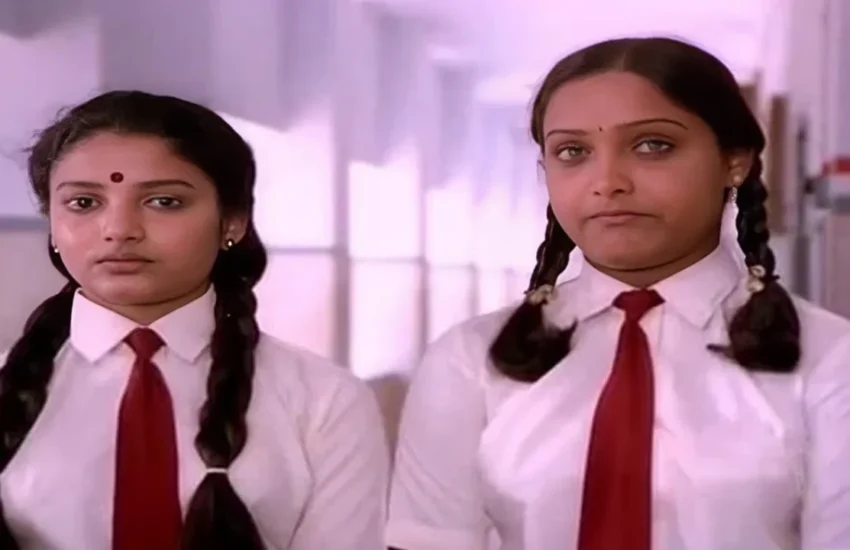Deciphering Gender Roles and Self-Realization in Greta Gerwig’s Barbie
Barbie opens with a brilliant homage to Stanley Kubrick’s 2001: A Space Odyssey, a scene that straightforwardly tells us that little girls who always played mothers dreamed of becoming something more after they started to play with Barbie dolls. So, we think the film is going to explore the ideology of making women more than just mothers and homemakers.
Also Read: Barbie: A Look into Consumerism and Feminism
From Barbie in “Barbie Land” to Barbie in the “Real World”

As we journey further into the movie, we arrive at Barbie Land, a realm inhabited by a group of Barbies living seemingly perfect lives. Yet, beneath the surface, it becomes evident that Barbie Land is not merely a fantasy world—it’s an ‘idea.’ Even the Barbies within this ‘idea’ are aware of its existence. They recognize that there’s a real world where women are believed to be as powerful and content as they are. Barbie Land challenges conventional notions of idealized beauty and lifestyle standards.
Barbie’s transition into the real world is marked by a poignant scene on a beach, where she grapples with feelings of fear, anxiety, and insecurity when confronted by men. This scene unveils two striking realizations: first, that today’s teens don’t hold the same affection for her, and second, the absence of women in leadership roles at Mattel, the company behind the Barbie brand. This moment seems poised to serve as the central conflict, highlighting how capitalism has commodified Barbie without genuinely empowering women. It also underscores Barbie’s dwindling relevance among contemporary young girls, who view her as a symbol of problematic beauty and life standards—an icon of the past.
Using Ken rightfully to include men in the conversation

Ken’s character adds another layer of complexity to the narrative. Initially portrayed as a polite figure within Barbie Land, his sole purpose is to catch Barbie’s gaze, yet he consistently faces neglect and disappointment. Upon entering the real world, Ken realizes the extent to which patriarchy dominates society. He adopts this patriarchal ideology and enforces it upon Barbie Land. What’s intriguing is the Barbies’ sudden respect for him and their willingness to serve him. This development sheds light on how women can sometimes be influenced by patriarchal norms, seeking security and comfort over self-sufficiency. Barbie’s apology to Ken for her previous mistreatment subtly acknowledges the struggles faced by men. Ken’s subsequent self-realization contradicts the ‘women in power’ ideology of Barbie Land, emphasizing the importance of individuality and equality.
What is Greta actually trying to say through Barbie?
Unlike a conventional screenplay, Barbie doesn’t adhere to a single ideology. It’s filled with conflicting viewpoints that challenge traditional feminist narratives. What may appear as a feminist moment is juxtaposed with scenes empathizing with men. The demand for women in power coexists with the importance of a balanced distribution of authority. The critique of capitalism is intertwined with endorsements of capitalist concepts. Greta Gerwig’s approach as a filmmaker seems to intentionally avoid aligning with any one feminist ideology. Instead, the film presents a tapestry of conflicting ideologies that mirror the extremism and polarization found in online culture.
The film’s primary message, delivered in a well-placed climax, is profound: “People invent concepts like patriarchy and Barbie to escape the harsh realities of life.” Perhaps the film intends to show that these ideologies are also invented to make sense of our chaotic realities. Ultimately, regardless of gender, the individual’s struggles and journey to self-realization take center stage.
A question to think
Ultimately, the question arises: should Barbie be dissected and approached from an analytical perspective, or enjoyed as a lighthearted adventure? The choice is yours. Greta Gerwig’s film masterfully navigates the intricate web of ideologies, leaving audiences with a thought-provoking and enjoyable cinematic experience. It invites us to question, reflect, and appreciate the complexities of our modern world.









One thought on “Deciphering Gender Roles and Self-Realization in Greta Gerwig’s Barbie”